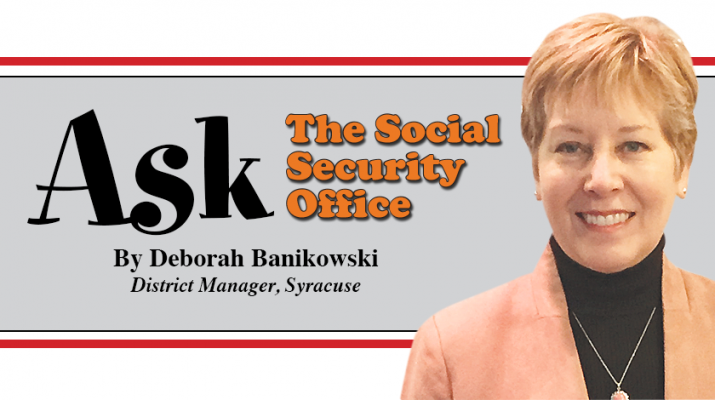By Deborah Banikowski
District Manager, Syracuse
Older people are at a greater risk of fraud and other forms of financial exploitation. The United States Postal Service has seen an increase in mail fraud and is promoting community strength and fraud awareness as a way to prevent abuse. Social Security agrees. You can help your more vulnerable loved ones fight fraud.
You or a loved one might receive an advertisement in the mail, but it could be from a private company or even a scammer. United States law prohibits people or non-government businesses from using words or emblems that mislead others. Their advertising can’t lead people to believe that they represent, are somehow affiliated with, or endorsed or approved by Social Security.
Scammers commonly target people who are looking for Social Security program and benefit information. If you receive misleading information about Social Security, send the complete advertisement, including the envelope it came in, to:
Office of the Inspector General Fraud Hotline
Social Security Administration
P.O. Box 17768
Baltimore, MD 21235
Community can simply mean your family unit. The more you know about what your loved ones are exposed to, the better you can protect them.
We also receive reports where someone pretending to be a Social Security employee has contacted members of the public. The intent of this type of call may be to steal your identity and money from your bank accounts. They may state that your Social Security number will be suspended or they may demand immediate payment. The caller generally asks you for personal information such as your Social Security number, date of birth, your mother’s maiden name, or your bank or financial account information. You should not provide any of this information to these individuals.
It’s possible that a Social Security employee may contact you to follow-up on a previous application for Social Security benefits or to follow-up on other business you initiated with Social Security. Remember, Social Security employees will never threaten you or demand any kind of payment in exchange for services.
It’s important that you report any and all fraud. This can only strengthen our communities and your family. You can report Social Security fraud at oig.ssa.gov/report.
Q&A
Q: I will rely on Medicare when I retire. Can you explain the different parts of Medicare?
A: The different parts of Medicare cover your specific needs. There are four parts, all of which work in tandem to deliver healthcare services:
• Part A (hospital insurance): Helps pay for inpatient care in a hospital or skilled nursing facility (following a hospital stay), some home health care, and hospice care.
• Part B (medical insurance): Helps pay for doctors services and many other medical services and supplies that hospital insurance doesn’t cover.
• Part C (Medicare Advantage plans): If you have Medicare Parts A and B, you can join a Medicare Advantage plan. Private companies offer Medicare Advantage plans, which are approved by Medicare. These plans generally help you pay the medical costs not covered by Medicare Part A and B.
• Part D (prescription drug coverage): Helps pay for medications doctors prescribe for treatment.
Q: What is the difference between Social Security disability and Supplemental Security Income (SSI) disability?
A: Social Security Disability Insurance (SSDI) is based on prior earnings. SSDI is financed through the taxes you pay into the Social Security program. To be eligible for a SSDI benefit, the worker must earn sufficient credits based on taxable work to be “insured” for Social Security purposes. SSDI benefits are payable to eligible blind or disabled workers, the widow(er)s of a disabled worker, or adults disabled since childhood.
SSI disability payments are made based on financial need to adults or children who are disabled or blind, have limited income and resources, meet the living arrangement requirements, and are otherwise eligible. SSI is a program financed through general revenues. For more information, visit www.socialsecurity.gov.
Q: Can a noncitizen get Supplemental Security Income (SSI)?
A: The laws and regulations concerning noncitizens differ for Social Security and SSI programs. Social Security administers both, even though they have different eligibility requirements. Some noncitizens do qualify for SSI. See Supplemental Security Income (SSI) For Noncitizens at www.socialsecurity.gov/pubs for more information.

